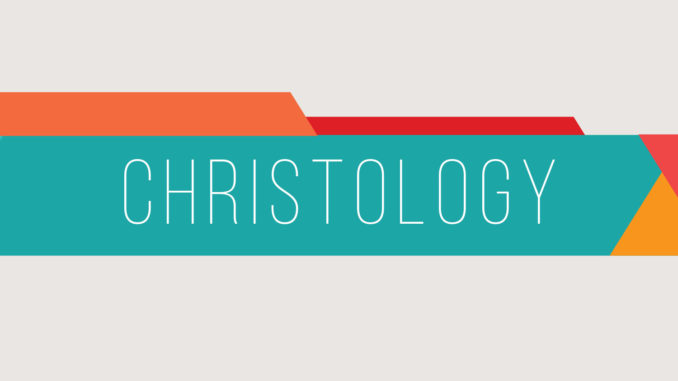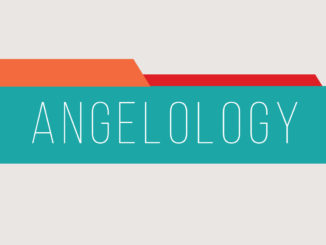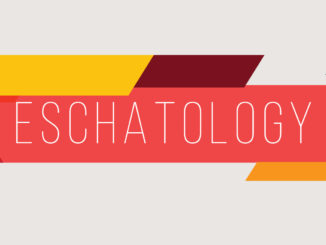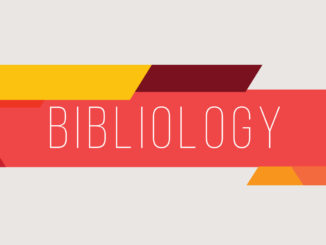
Christology is the study of Jesus Christ. It includes Christ in eternity past, His incarnation, His suffering, death, and resurrection, His present work both on earth and in heaven, and His future work from rapture to eternity future.
The eternality and preexistence of the Son of God is the most critical aspect of Christology. If Christ had come into existence at any point in the past, then He does not have the qualities of eternity which God himself possesses. Jesus verifies His preexistence in John 8, beginning with “I Am the light of the world” and declaring the fact that “before Abraham was, I am”(John 8:12, 58). John says the “word” became flesh proving He existed before his incarnation (John 1:1, 14).
Christ frequently appeared in the O.T. in the form of a theophany as ‘The Angel of Jehovah.’ These theophanies are scattered throughout the O.T. [1]. These verses and others show a rather extensive work by our Lord to his people.
Let’s champion the basic principles of the Bible’s infallibility and verbal inerrancy. The scriptures are an authoritative revelation about the facts of Jesus Christ. Click To TweetThe incarnation of the Lord is the central fact in Christianity. Jesus Christ was born of the virgin Mary (Matthew 1:23. Galatians 4:4) to fulfill Isaiah’s prophecy (Isaiah 7:14). John says that the eternal and divine Word became flesh and that God thus “dwelled” among us (John 1:1, 14, Exodus 40:34-35). The doctrine of the incarnation means that the second person of the Trinity took on our human flesh. Jesus Christ is both unrestricted deity joined to perfect humanity forever and without
The four gospels record the death of Christ, which Christ himself prophesized as a death for the forgiveness of sins, the creation of the new covenant, and the defeat of Satan (Luke 22:15-20, John 12:31, 16:11). The central core of Christ’s teaching on this issue became the authoritative proclamations of the apostles. The evidence for his death by crucifixion is overwhelming.
Christ’s ascension (Acts 1:11, Ephesians 4:7-10) led to his exaltation
to the throne and his right to rule over creation, nations, and the church. He was exalted to the right hand of God in keeping with the Davidic hope (Psalm 110:1. Acts 2:34-35) and currently reigns over the universe (Ephesians 1:20-22) and is head over all things pertaining to the church (Ephesians 1:22-23, I Peter 3:22).
Someday soon Christ will return to rapture the church (John 14:1-3, I Thessalonians 4:13-18) to be with him, and each of us will stand before the judgment-seat of God having our works evaluated as to whether they are valuable or worthless (I Corinthians 3:11-15). We will then celebrate with Christ at the marriage supper of the lamb (Matthew 22:1-14, 25:1-13). While these events take place in heaven, God is pouring out his judgment on the world during the seven-year Great Tribulation[2]. Christ will then rule for 1,000 years[3].
Historical Perspective
The early church fathers focused on refuting Gnosticism and Docetismsm and affirmed the two natures of Christ as well as his incarnation. The council of Nicea in 325 A.D. stated that Jesus is the Son of God in the full sense or more specifically, “of the same essence as the father.” The council of Chalcedon in 451 A.D. affirmed that Jesus is one person with two natures: one divine and the other human.
The Nineteenth and Twentieth Century concept of Christ is a retreat to an ‘Adoptionistic’ view of the person of Christ of the German liberal theologians and their American counterparts. Frederick
a human being elevated by virtue of his personal piety and vocation to receive the title “Son of Man.’ The religion of Jesus and his disciples were an ethical, moral kingdom; no more no less. American theologians, Paul Tillich, and Alfred Whitehead followed their German mentors in the twentieth Century to the conclusion that Christ is merely a
Practical Application
Today, we are fighting the same battles the early church fathers fought in the fourth and fifth centuries. With the rise of evolution as a means of explaining the complexity of modern life, a historical/critical approach to the Bible, and a naturalistic explanation of life, the entire structure of orthodoxy and the traditional approaches to Christology is eroded. This leads to the denial of a supernatural Savior and a fallible and unreliable Bible as a record of God’s revelation to mankind.
Let’s champion the basic principles of the Bible’s infallibility and verbal inerrancy. The scriptures are an authoritative revelation about the facts of Jesus Christ. In defending them, we are upholding the orthodox view of Christ as taught in the New Testament and upheld at Nicea and Chalcedon.
Click here to read the Introduction to the series, Why Study Theology
Click here to read part one of Rooted: An Introduction to Systematic Theology, Bibliology
Click here to read part two of Rooted: An Introduction to Systematic Theology, Theology Proper (available October 29, 2019)
Click here to read part four of Rooted: An Introduction to Systematic Theology, Pneumatology (available October 31, 2019)
Click here to read part five of Rooted: An Introduction to Systematic Theology, Angelology (available November 1, 2019)
Click here to read part six of Rooted: An Introduction to Systematic Theology, Ecclesiology (available November 4, 2019)
Click here to read part seven of Rooted: An Introduction to Systematic Theology, Anthropology (available November 5, 2019)
Click here to read part eight of Rooted: An Introduction to Systematic Theology, Hamartiology (available November 6, 2019)
Click here to read part nine of Rooted: An Introduction to Systematic Theology, Soteriology (available November 7, 2019)
Click here to read part ten of Rooted: An Introduction to Systematic Theology, Eschatology (available November 8, 2019)
Click here to read part eleven of Rooted: An Introduction to Systematic Theology, Dispensationalism (available November 8, 2019)
Notes
[1] Genesis 16:7-13, 21:17, Exodus 3:2, Numbers 20:16, Judges 2:1-4, 5:23, II Samuel 14:17-20, I Kings 19:5-7
[2] Deuteronomy 30:1-5, Psalm 2, Matthew 24-25, Mark 13, Luke 21, Revelation 19:11-21
[3] Isaiah 2:1-4, Daniel 2:44-45, 7:13-14, Zechariah 14, Revelation 20




4 Trackbacks / Pingbacks
Comments are closed.